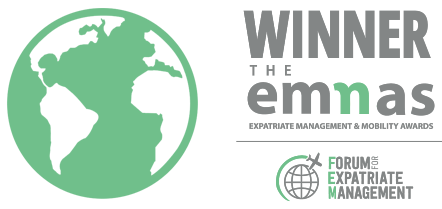Multi-Award Winning US Tax Preparation For Americans Living Abroad

We love our American expat clients – and they send the love right back! In fact, we’ve been named Global US Expat Tax Provider of the Year a record five times.
At Bright!Tax, we focus exclusively on US expat tax – it’s all we do. Our team of expat tax experts works one-on-one with you to address your unique needs. They advise and support you the whole way to ensure you achieve your best possible outcome.
Online-Banking Secure
Our bespoke online client organizer is user-friendly, online-banking secure, and adapts to your circumstances.
Expat Tax Experts
Achieve your best outcome with certified, world-class expat tax professional preparation of your return.
Effortless Filing
Talented, personable, accessible - Our experts and their support teams manage all the heavy lifting for you.
Flat Fees & No Surprises
We’ll provide a clear, upfront quote for your return. Any necessary add-ons are confirmed before you start.
Our Expat Tax Filing Process
Get started now, and receive a quote.
Provide your documents and details to our secure portal.
Sit back and relax while your Bright!Tax team prepares your taxes.
Approve a draft of your tax return, and we eFile your taxes!
Why Choose Bright!Tax For Your US Tax Returns
World Class Experts in US Tax
Bright!Tax has been named Global US Expat Tax Provider of the Year 5 times, as well as acclaimed for Financial Services Innovation.
Personal Support
We appreciate that everyone is unique. Your Bright!Tax team will use a personalized US tax filing strategy to save you money.
Easy and Hassle-Free
Our overriding mission is to ensure that your experience is concise, simple, personal, and ultra-responsive. We will support you at every step.
We Specialize in Catching Up
If you’re behind with your IRS taxes or FBAR filing, we can help you catch up and avoid penalties with the Streamlined Procedure amnesty program.

Gregory Dewald
Bright!Tax Founder

For years I've had the good fortune to travel and to live abroad. I have been able to see many countries and many cultures, and the common thread through every adventure abroad is I wanted to do more - to see more. I've been fortunate in business, and have been honored many times by my peers with awards and commendations. Bright!Tax is the meeting point and culmination of my two greatest passions - exceeding our clients' expectations and experiencing the wider world.
Multi EMMA Award Winner
Expat Tax Provider of the Year
EMMA Award Winner
Financial Services Innovation
Forbes Top 100 Tax Twitter Accounts
Emerging 30 – Fastest Growing Companies
Fast 55 – Fastest Growing Companies
Ernst & Young Crescendo Award
Loved By US Expats Worldwide
Our Services
Tax Prep
Our premium US expat federal tax return filing service, including all expat credits and exclusions.
Starting at $590.
Streamlined
Need to catch up on prior years? The Streamlined Procedure is a penalty-free path to IRS compliance and peace of mind.
Starting at $1650.
Consultation
Consult with one of our world-class, expat-expert CPAs if you're looking for advice or tax planning but not tax prep for now.
$260/30 minutes.